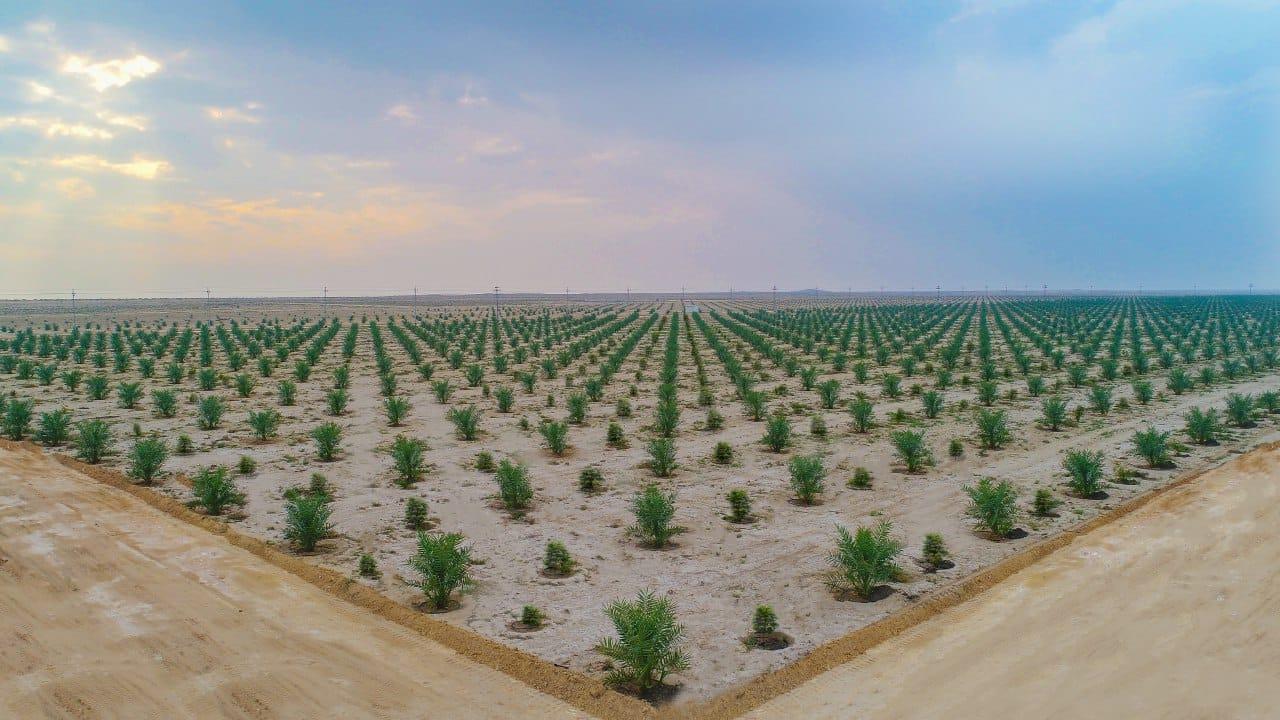Iraq has historically been home to agriculture-based societies owing to its fabled fertile soil. Even as oil has dominated the Iraqi economy in the modern era, agriculture accounted for almost a fifth of the gross domestic product (GDP) as recently as 1995. But decades of war, sanctions, governmental mismanagement, climate change, and increasing water scarcity have decimated agricultural output. Today, the sector accounts for a mere 5% of Iraq’s GDP.
Despite the setbacks, agriculture is still the second biggest sector of the economy—after the oil industry—and employs approximately 20% of the national workforce. Against this backdrop, there have in recent years been hopeful signs of recovery among farmers. This resurgence is pronounced in the southern city of Karbala, where it has led to the creation of direly needed jobs—and revitalizing an old way of life.
Decades ago, Karbala was an Iraqi city that stood out for its lush orchards of a variety of dates and citrus fruits. It was in Karbala that former Iraqi prime minister Abd Al-Karim Qasim established Iraq’s first canning plant in 1962, to preserve homegrown fruits and vegetables. Since the 1990s, however, local agriculture has declined as it has elsewhere in Iraq. Many farmers have opted to sell and bulldoze their orchards over the years, replacing them with residential buildings.
Iraqi economics professor Aqeel Al-Massoudi told Amwaj.media that many farmers have left their profession during times of high oil prices. “In the early years of the political change [following the US-led invasion] in 2003, the Iraqi economy recovered and many thought that the financial abundance achieved by high oil prices could last,” Massoudi explained. Mindful of these dynamics, he added, “This pushed many people to leave their farming jobs and look for other comfortable and guaranteed income-generating jobs.”
Massoudi additionally underscored that the period of severe international sanctions against Iraq in the 1990s was instructive for Iraqis. In 1993, the UN’s World Food Program assessed that the sanctions regime was causing “persistent deprivation, severe hunger, and malnutrition for a vast majority of the Iraqi population.” Massoudi said many Iraqis saw firsthand how their access to food was subject to macroeconomic shake-ups, spurring many to return to farming.
Climate change and a water scarcity crisis have also contributed to the decline of Iraqi agriculture. A 2012 report by the UN’s Food and Agriculture Organization found that water levels across the Tigris and Euphrates rivers had fallen by over 60% in two decades. This has been attributed to droughts and Turkey reducing the flow of these rivers into Iraq by building dams. Historically low rainfall and high temperatures have also depleted water. In 2021, precipitation in the country was the second-lowest on record in 40 years.
In southern Iraq, investments in new irrigation systems have helped boost productivity. The outskirts of Karbala have seen the development of thousands of farms that cultivate a variety of vegetables. Local farmers in the area use roughly 1,000 irrigation systems to extract water and distribute it among their crops. The irrigation technology being utilized is more sustainable and relies on modern sprinkler systems.
The bigger picture, however, is that only 20% of Iraqi farmers are estimated to have access to irrigation. Many cannot afford it and therefore continue to rely on traditional methods to extract underground water. Riad Turki, a 54-year-old farmer, told Amwaj.media, “We are still individually digging wells in many areas, and the cost of drilling a well is sometimes 2M IQD (1,370 USD) which is a big amount for farmers to be able to afford.”
Turki hopes that farmers will have greater support from the government to increase production. So far, the Directorate of Agriculture in Karbala has been at the forefront of efforts to implement plans to boost agricultural output, particularly of strategic crops such as wheat and barley. In 2014, the Directorate announced a plan to cultivate 100,000 dunums (10,000 hectares) of land in Karbala Governorate; last year, about 900,000 tons of wheat were produced.
Another major agricultural project in Karbala is the Fadak Palm Project, which involves the planting of 26,000 date trees. The project's sponsors say they are close to “producing large quantities of dates that meet the needs of the local consumer” and increasing “green spaces in the desert.”

